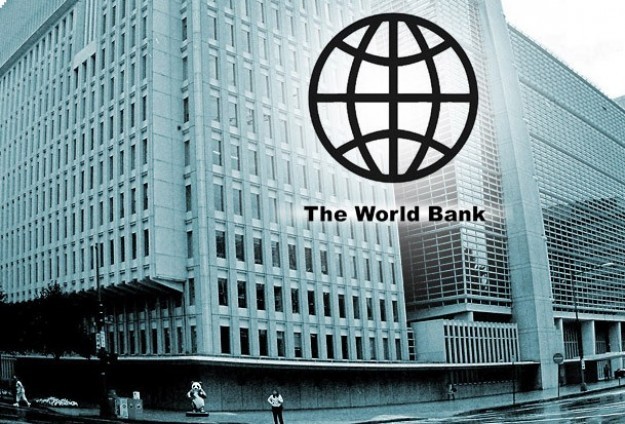The World Bank has again predicted gloomy economic prospect for Nigeria and other developing economies around the globe, noting that the global economy’s performance by end 2924 would be the worst in 30 years.
The Bank said by end of 2024, one out of every four people, (about 40 per cent) will still be poorer than they were in 2019 at the outbreak of COVID-19.
According to the World Bank’s latest Global Economic Prospects report just released, low income countries will within the decade grow at the rate of 5.5 per cent, weaker than previously expected, saying also that growth in developed economies would slow to 1.2 per cent this year from 1.5 per cent in 2023.
The Bank, however, said risk of a global recession has receded, largely because of the strength of the United States economy, noting however, that mounting geopolitical tensions could create fresh near-term hazards for the world economy.
The global lender said world trade growth in 2024 is expected to be only half the average in the decade before the COVID pandemic, even as borrowing costs for developing economies, especially those with poor credit ratings are likely to remain steep with global interest rates stuck at four-decade highs in inflation-adjusted terms.
“Global growth is projected to slow for the third year in a row—from 2.6% last year to 2.4% in 2024, almost three-quarters of a percentage point below the average of the 2010s,” the bank said
“Developing economies are projected to grow just 3.9%, more than one percentage point below the average of the previous decade. After a disappointing performance last year, low-income countries should grow 5.5%, weaker than previously expected.
“By the end of 2024, people in about one out of every four developing countries and about 40% of low-income countries will still be poorer than they were on the eve of the COVID pandemic in 2019. In advanced economies, meanwhile, growth is set to slow to 1.2% this year from 1.5% in 2023.
“Without a major course correction, the 2020s will go down as a decade of wasted opportunity,” said Indermit Gill, the World Bank Group’s Chief Economist and Senior Vice President.
“Near-term growth will remain weak, leaving many developing countries—especially the poorest—stuck in a trap: with paralysing levels of debt and tenuous access to food for nearly one out of every three people.
“That would obstruct progress on many global priorities. Opportunities still exist to turn the tide. This report offers a clear way forward: it spells out the transformation that can be achieved if governments act now to accelerate investment and strengthen fiscal policy frameworks.”
READ ALSO: http://UBA’s capitalisation hits N1.022tn, emerges best performing banking stock in 2023
To tackle climate change and achieve other key global development goals by 2030, developing countries, the World Bank said, will need to deliver a formidable increase in investment—about $2.4 trillion per year, saying without a comprehensive policy package, prospects for such an increase are not bright.
Per capita investment growth in developing economies between 2023 and 2024 it said is expected to average only 3.7%, just over half the rate of the previous two decades.
The report offers the first global analysis of what it will take to generate a sustained investment boom, drawing from the experience of 35 advanced economies and 69 developing economies over the past 70 years.
It said that developing economies often reap an economic windfall when they accelerate per capita investment growth to at least 4% and sustain it for six years or more: the pace of convergence with advanced-economy income levels speeds up, the poverty rate declines more swiftly, and productivity growth quadruples.
Other benefits also materialise during these booms, the bank said. Among other things, it said, inflation falls, fiscal and external positions improve, and people’s access to the internet expands rapidly.
“Investment booms have the potential to transform developing economies and help them speed up the energy transition and achieve a wide variety of development objectives,” said Ayhan Kose, the World Bank’s Deputy Chief Economist and Director of the Prospects Group.
“To spark such booms, developing economies need to implement comprehensive policy packages to improve fiscal and monetary frameworks, expand cross-border trade and financial flows, improve the investment climate, and strengthen the quality of institutions.
“That is hard work, but many developing economies have been able to do it before. Doing it again will help mitigate the projected slowdown in potential growth in the rest of this decade,” the bank noted
The Bank called on developing countries to put in place a fiscal framework that helps to discipline government spending, by adopting flexible exchange-rate regimes, and by avoiding restrictions on the movement of international capital.
The World Bank noted that such policy measures could help commodity exporters who are at the highest risk level while advising them to build sovereign-wealth funds and other rainy-day funds that can be deployed quickly in an emergency.


